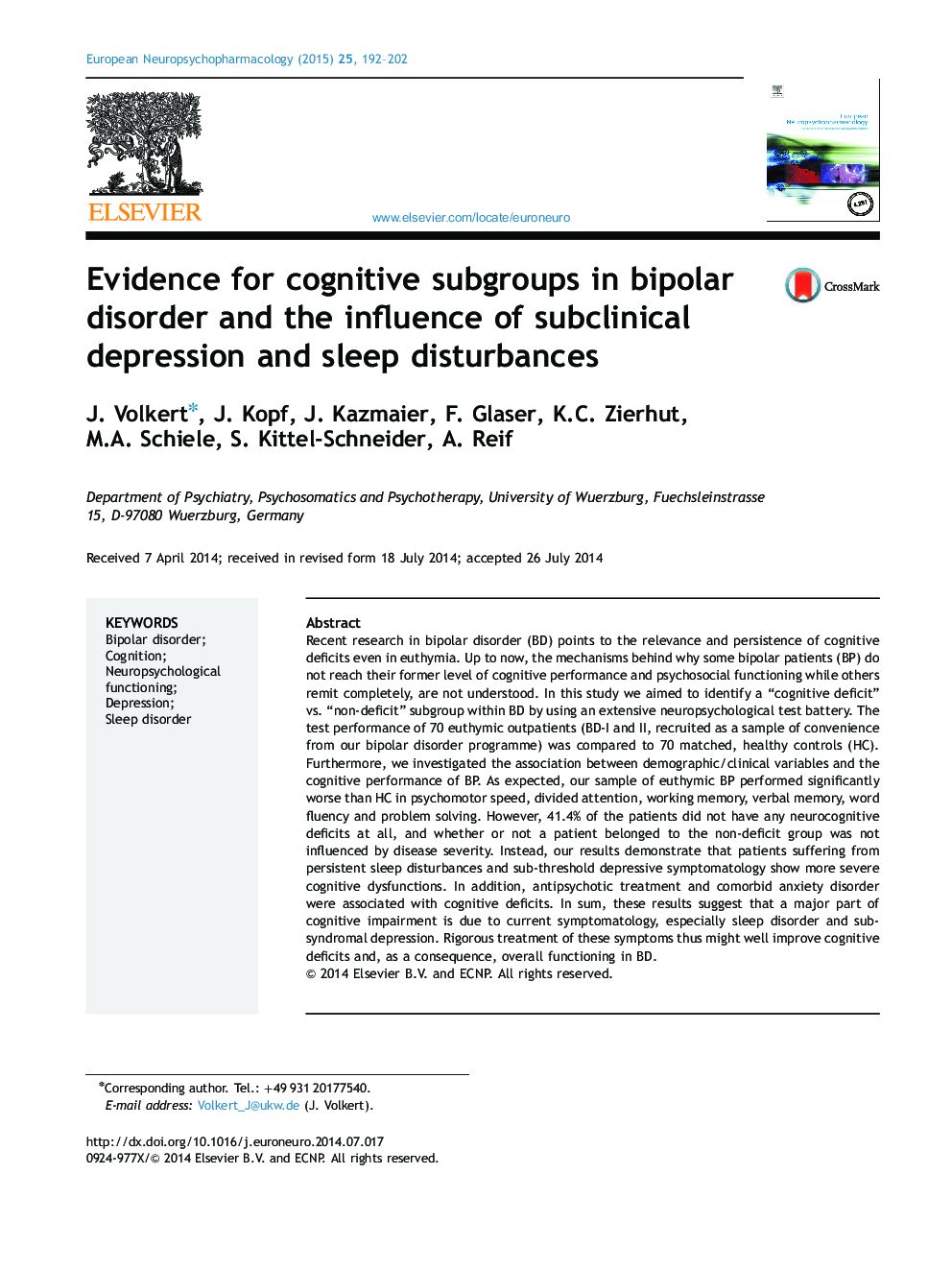| Article ID | Journal | Published Year | Pages | File Type |
|---|---|---|---|---|
| 320137 | European Neuropsychopharmacology | 2015 | 11 Pages |
Recent research in bipolar disorder (BD) points to the relevance and persistence of cognitive deficits even in euthymia. Up to now, the mechanisms behind why some bipolar patients (BP) do not reach their former level of cognitive performance and psychosocial functioning while others remit completely, are not understood. In this study we aimed to identify a “cognitive deficit” vs. “non-deficit” subgroup within BD by using an extensive neuropsychological test battery. The test performance of 70 euthymic outpatients (BD-I and II, recruited as a sample of convenience from our bipolar disorder programme) was compared to 70 matched, healthy controls (HC). Furthermore, we investigated the association between demographic/clinical variables and the cognitive performance of BP. As expected, our sample of euthymic BP performed significantly worse than HC in psychomotor speed, divided attention, working memory, verbal memory, word fluency and problem solving. However, 41.4% of the patients did not have any neurocognitive deficits at all, and whether or not a patient belonged to the non-deficit group was not influenced by disease severity. Instead, our results demonstrate that patients suffering from persistent sleep disturbances and sub-threshold depressive symptomatology show more severe cognitive dysfunctions. In addition, antipsychotic treatment and comorbid anxiety disorder were associated with cognitive deficits. In sum, these results suggest that a major part of cognitive impairment is due to current symptomatology, especially sleep disorder and sub-syndromal depression. Rigorous treatment of these symptoms thus might well improve cognitive deficits and, as a consequence, overall functioning in BD.
